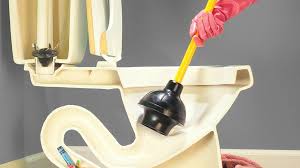Dealing with a toilet that clogs frequently can be frustrating and inconvenient. Whether it happens once a week or multiple times a day, understanding the root cause is essential to finding a lasting solution. In this article, we’ll explore the common reasons behind frequent toilet clogs and provide practical tips to prevent them.Common Causes of Frequent Toilet Clogs
- Excessive Toilet Paper Usage: Using too much toilet paper at once can overwhelm your plumbing system, leading to clogs. While toilet paper is designed to dissolve, large amounts can accumulate before breaking down.
- Flushing Non-Flushable Items: Many people accidentally or unknowingly flush items like wet wipes, feminine hygiene products, or cotton balls. These materials don’t dissolve easily and can create stubborn blockages.
- Low-Flow Toilets: Older low-flow toilets may not have enough flushing power to clear waste effectively, leading to recurring clogs.
- Mineral Buildup in Pipes: Hard water can cause mineral deposits to accumulate in pipes over time, reducing water flow and increasing the likelihood of clogs.
- Partial Blockages: A partial blockage deeper in the plumbing system may not completely stop water flow but can cause frequent clogs as debris accumulates.
How to Prevent Frequent Toilet Clogs
- Use Less Toilet Paper: Try to use only the necessary amount of toilet paper. If you need more, flush in stages rather than all at once.
- Dispose of Non-Flushable Items Properly: Keep a small trash bin in your bathroom for items like wipes, tissues, and sanitary products.
- Upgrade Your Toilet: If you have an older low-flow toilet, consider replacing it with a newer, more efficient model that provides better flushing power.
- Regular Maintenance: Use a plunger or drain snake periodically to clear minor blockages before they become severe. Enzyme-based drain cleaners can also help break down organic matter.
- Check for Hidden Plumbing Issues: If clogs persist despite your efforts, there may be a deeper issue in your sewer line. A professional plumber can inspect and resolve hidden problems.

When to Call a ProfessionalWhile many toilet clogs can be resolved with DIY methods, some situations require professional assistance. If you experience any of the following, it’s time to call a plumber:
- Multiple fixtures in your home are backing up simultaneously.
- Water drains very slowly even after plunging.
- You notice foul odors coming from drains.
- Gurgling sounds occur when flushing or using other plumbing fixtures.
Final ThoughtsA frequently clogging toilet is more than just a nuisance—it can indicate underlying plumbing issues that need attention. By identifying the cause and taking preventive measures, you can reduce the chances of future clogs and maintain a smoothly functioning bathroom. If problems persist, don’t hesitate to seek professional help to avoid more severe damage.
